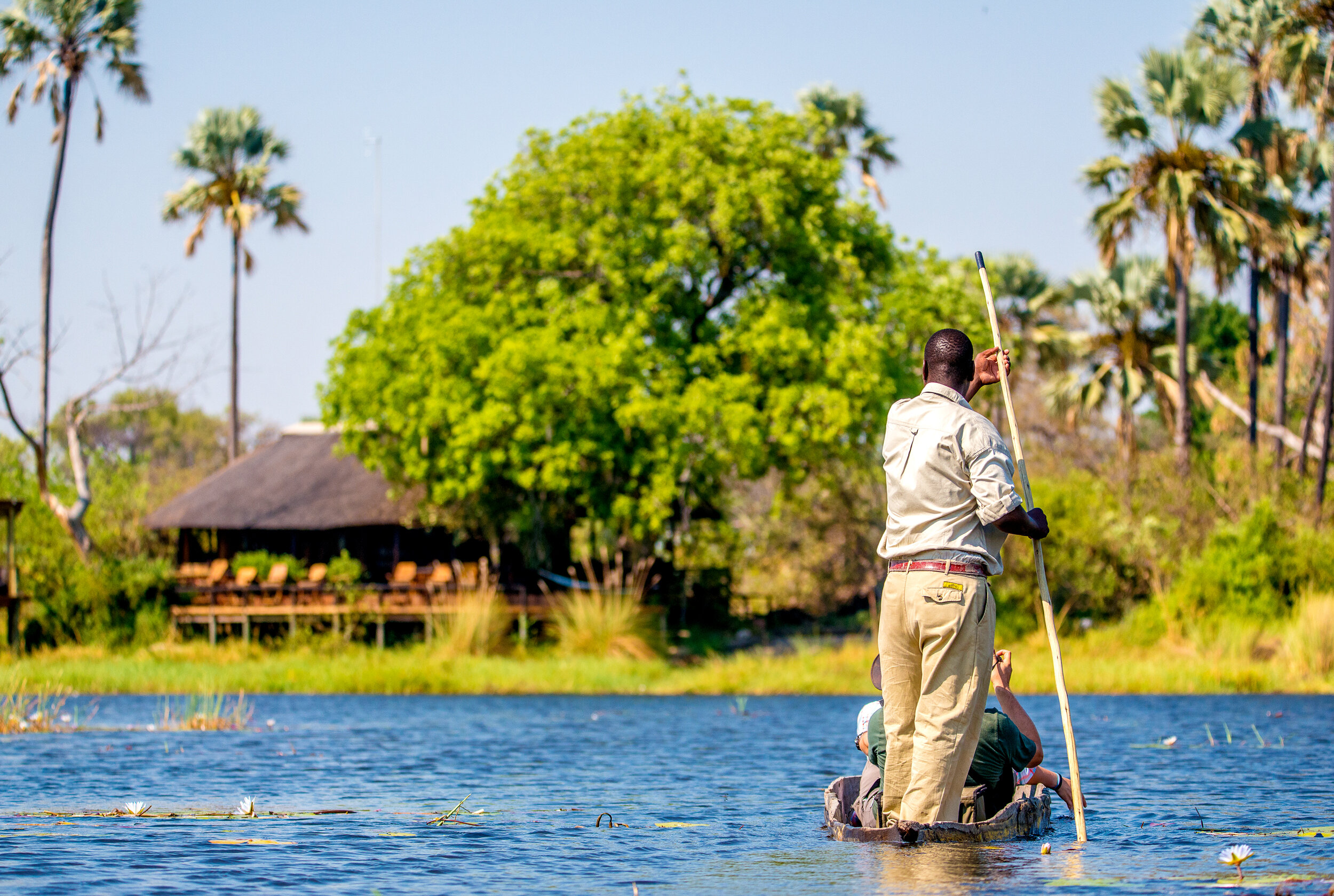Our Philosophy
Our premise is that the Okavango was, in its prehistoric form, pristine, and that every intervention comes at a cost to that pristine natural and cultural environment. We strive to ensure that our every action has a mitigating factor and a concomitant benefit, with each ‘pro’ weighed carefully against its ‘con’, whilst recognizing the need to offer our guests the highest standards of comfort consistent with the environment we are in.
Our buildings cannot improve upon the natural landscape; they must therefore blend into it as unobtrusively as possible. This sometimes means that a tree grows through a roof or a floor, it always means that you will find no glass in our windows, and it very often means that the building itself is elevated onto a deck, to minimize our disturbance of the earth and vegetation below. We import the bare minimum – locally grown reed and grass are our principal means of construction where feasible. Where it is not we use easily removable canvas. Our furniture is locally made from, wherever possible, locally grown material. We support local artists and artisans. Our interiors are inspired and informed by the Okavango Delta and the palette and textures that can be found in our surroundings.
Our power is generated by solar panels, and where possible our water heated in similar fashion. As unsightly as they may be, demanding as they are of exposure to sunlight, our solar arrays compromise our aesthetic, or at least challenge a re-evaluation of an aesthetic. We compromise our ability to give our visitors air-conditioning and unlimited supplies of ice in this way, but large four- and six-wheel-drive fuel tankers do not cross floodplains and streams and cut through forests to deliver diesel for our generators, and the generators we don’t have do not spew filth and noise. We hope you prefer it that way.
Our human waste is treated in removable, prefabricated and sealed septic tanks. The effluent is inert and of no danger to man or beast. Our kitchen waster is sorted – what can be burnt is burnt is purpose built cages to ensure thorough combustion with no risk of fire; our vegetable matter is composted; everything else is bagged and removed to the dump-site outside Maun.
We bring foreigners into the Okavango who generate cultural waste by importing ideas, concepts and philosophies that are different to ours. However our policy creates an atmosphere in which our guests can interact with us on a personal level, so that the cultural traffic flows in both directions and each party gains from the interaction. The highest guide-to-guest ratio in the country and the fact that we employ only Batswana in our lodges and camps ensure that you will meet and have meaningful interactions with the people of the country.
And we create employment and opportunity for our people, generate revenue for our government, and police our resources against the depredations of those who don’t care for it. We help create world-wide awareness and exposure of our resources so they do not suffer the effects of thoughtless actions by neighbouring states, and we take pride in their pre-eminence in the world. We are also proud of the respect our people earn from travelers from all over the globe, for their courtesy and courage and resourcefulness; and we try to set the very best example possible to our peers and to our guests of how to integrate, contribute and preserve our heritage.





